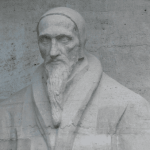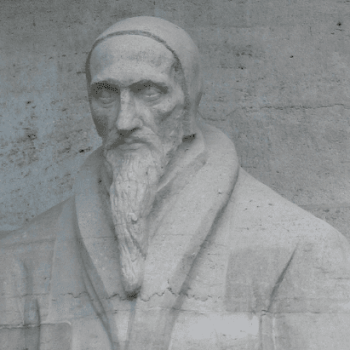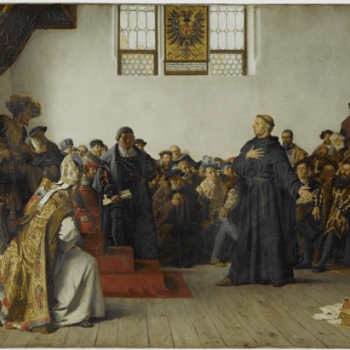
Martin Luther’s 95 Theses are in public domain, and you can read them at here.
Thesis 6
The Pope cannot remit any guilt, except by declaring and showing that it has been remitted by God; or, to be sure, by remitting guilt in cases reserved to his judgment. If his right to grant remission in these cases were disregarded, the guilt would certainly remain unforgiven.
The thesis is orthodox. The Catechism of the Catholic Church (CCC) says:
1441 Only God forgives sins (…) Further, by virtue of his divine authority he gives this power to men to exercise in his name.
1442 Christ has willed that in her prayer and life and action his whole Church should be the sign and instrument of the forgiveness and reconciliation that he acquired for us at the price of his blood.
Thesis 7
God remits guilt to no one unless at the same time he humbles him in all things and makes him submissive to the vicar, the priest.
The thesis is orthodox. The Scripture says:
And when he had said this, he breathed on them, and said to them,
“Receive the Holy Spirit. If you forgive the sins of any, they are forgiven; if you retain the sins of any, they are retained.” (John 20:22-23)
Thesis 8
The penitential canons are imposed only on the living, and, according to the canons themselves, nothing should be imposed on the dying.
The thesis is orthodox.
Can. 1252 The law of abstinence binds those who have completed their fourteenth year.
The law of fasting binds those who have attained their majority, until the beginning of their sixtieth year.
However, as the Portuguese Episcopal Conference explains:⠀
“The present determinations on fasting and abstinence only apply under normal health conditions, and the ill are therefore exempted from their observance.”
Thesis 9
Therefore the Holy Spirit through the Pope is kind to us insofar as the Pope in his decrees always makes exception of the article of death and of necessity.
The thesis is heterodox.
Penitential canons are dispensed to the dying faithful, indeed.
However, the Holy Spirit can benefit them through the Popes in his decrees that consider the circumstance of death and necessity.
Saint Paul VI says in Indulgentiarum Doctrina:
n.18 To the faithful in danger of death who cannot be assisted by a priest to bring them the sacraments and impart the apostolic blessing with its attendant plenary indulgence (…)
Holy Mother Church nevertheless grants a plenary indulgence to be acquired at the point of death, provided they are properly disposed and have been in the habit of reciting some prayers during their lifetime (…)
This plenary indulgence at the point of death can be acquired by the faithful even if they have already obtained another plenary indulgence on the same day.
Thesis 10
Those priests act ignorantly and wickedly who, in the case of the dying, reserve canonical penalties for purgatory.
If “canonical penalties” therefore means abstinence and fasting (related to “penitential canons” from Thesis 6), the thesis is orthodox.
The reason is that of the commentary of thesis 08:
The dying faithful are exempt from the observance of fasting and abstinence.











